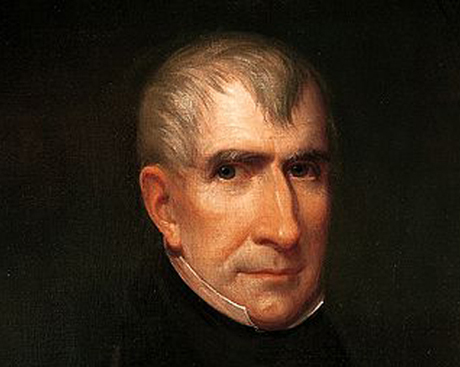On April 4, 1841, William Henry Harrison died of pneumonia, becoming the first President of the United States to die in office and the one with the shortest term served (he died on his 32nd day as president). A renowned Indian killer (having risen to fame for his part in 1811’s Battle of Tippecanoe), a proponent of the expansion of slavery into Northwest Territories, and a Whig, Harrison won the presidency in part by turning the Democrats’ “log cabin and hard cider” aspersions on his character as the basic symbols of the campaign.
Though hardly a “limited government man,” some limited government history buffs proclaim him the Greatest President, on the ostensibly droll and possibly cynical grounds that he spent so little time in office.
On a much sadder note, Martin Luther King, Jr., was assassinated on this day in 1968.

1 reply on “Tippecanoe (and, sadly, MLK, too)”
Until the passage of the Twenty-Fifth Amendment, the Constitution did not state that, upon removal of a President by death or by resignation, the Vice President became the President. Rather, the Constitution merely declared that the Vice President should in such case act as President, exactly as in a case of temporary inability (Article II § 1 ¶ 6).
But, after the death of William Henry Harrison, when addressed by Congress as “Acting President”, Vice President Tyler rejected the document, and insisted that he were President. Congress acquiesced.
Tyler, Filmore, Andrew Johnson, and Arthur were never properly President of the United States, as none of them were elected to the position. But each of them was constitutionally empowered to act as President, so the matter is purely technical.